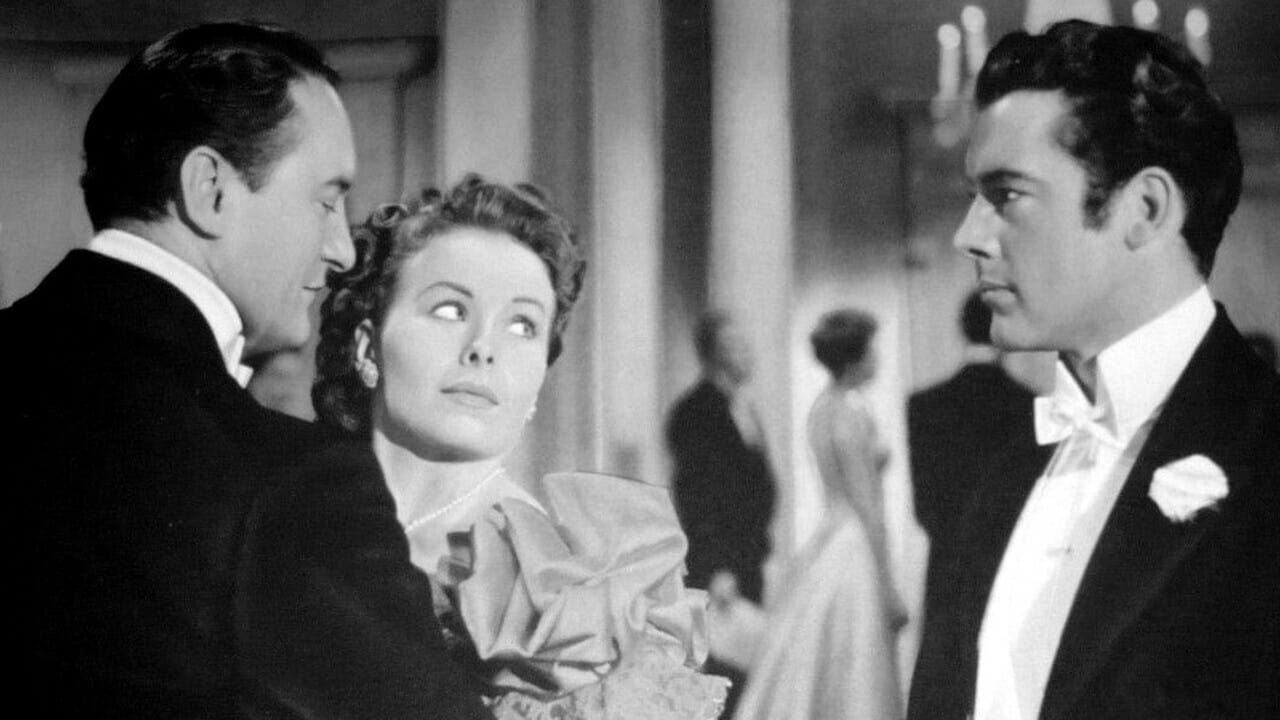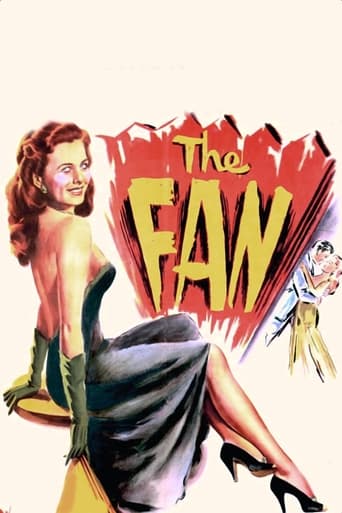


Excellent, a Must See
... View MoreExcellent and certainly provocative... If nothing else, the film is a real conversation starter.
... View MoreThe movie is wonderful and true, an act of love in all its contradictions and complexity
... View MoreI didn’t really have many expectations going into the movie (good or bad), but I actually really enjoyed it. I really liked the characters and the banter between them.
... View MoreOscar Wilde shines through all the way with his remarkable wit and knowledge of human nature, here especially about women. Dorothy Parker adding to it makes it a double treat. Here you find Oscar Wilde amazingly updated to after the second world war with its rationing and bombed ruins of London, adding an extra spice of melancholy and sadness to the glittering wit and intrigue of fin de siècle refinement. All the actors are outstanding, Otto Preminger bringing out the best of them all, not only George Sanders and Madeleine Carroll in double performances as both young and old; but also Jeanne Crain and Richard Greene are exactly adapted to their involuntary parts of having to feign their demeanour and treading uncertainly on a precarious path of extreme human delicacy. You are led to believe the worst of Madeleine Carroll at first, and indeed she is a fallen lady, but she has learned something of it and conveys the wisdom of her experience in a wondrous way according to the best of Oscar Wilde's sharp human studies. This is a film for wits to relish, and Otto Preminger surprises once again with delivering something entirely new even to his own experience.
... View MoreThis 1949 version of Oscar Wildes Lady Windermere's Fan is lovely, performed with wry wit and delicious innuendos. Madeleine Carroll plays Mrs. Erlynne brilliantly along with George Sanders as Lord Robert Darlington, together they take us back to a different era. The now elderly Mrs. Erlynne recounts memories of love , loss and a mother's sacrifice and this story is played out in flashback in Victorian era London, with Jeanne Crain as the beautiful, young Lady Margaret Windermere and Richard Greene as Lord Arthur Windermere. Martita Hunt amuses as the Duchess of Berwick, a typical gossipy, upper-class matron. This is not a classic film of Oscar Wildes classic story, but it is very thoughtfully done and this film version moves along at a pleasurable pace. I must correct a fellow reviewer, we are told the fate of Lady and Lord Windermere, early in the story Mrs. Erlynne tells Lord Darlington she has visited their grave as they were killed together in the first bombing of London during WW II. I enjoyed this story about the hypocrisy and morals during the Victorian era , and Madeleines Carroll's delightful performance I would watch again. But this is a film I encourage the reader to watch and decide for themselves.
... View MoreStill, another picture depicting a mother's sacrifice. Don't you think it was naive of Jeanne Crain never to realize that Madeleine Carroll was her mother? Who else but a mother would speak to Crain in the way Carroll did?Carroll steals the film as a woman with a past who returns to London to secure her dead daughter's fan. The only way she can prove her involvement with the fan is to reintroduce herself to the elderly George Sanders, once a lover of the Crain character so many years ago.This is definitely a film describing the mores, culture and gossip of London society, circa turn of the century. Martita Hunt, as the duchess, is just perfect in the part of the gossiper thriving attention.Carroll gave up a potential life of luxury to save her daughter's marriage. Didn't anyone think it odd that Carroll, so much older, could actually be the lover of Crain's husband, Richard Greene, her son-in-law?
... View MoreI HAVE TO seriously differ with the same review of this gem of a film. Agreed that George Sanders is wonderful (as usual) and that the bookends of the film are not necessary though rather charming, but the film is a jewel, all the performances are very good and MADELEINE CARROLL in her last film ever is totally wonderful and EXQUISITE.. Jeanne Crain does a credible job playing a British aristocrat, accent and all and Martita Hunt as always steals every scene she is in. The sets and costumes are stunning, and it is a pity it was not filmed in color. Otto Preminger is a strange choice as a director for this vehicle but he is always fascinating, even his misfires and this certainly is NOT one of them.A must see believe me.....
... View More